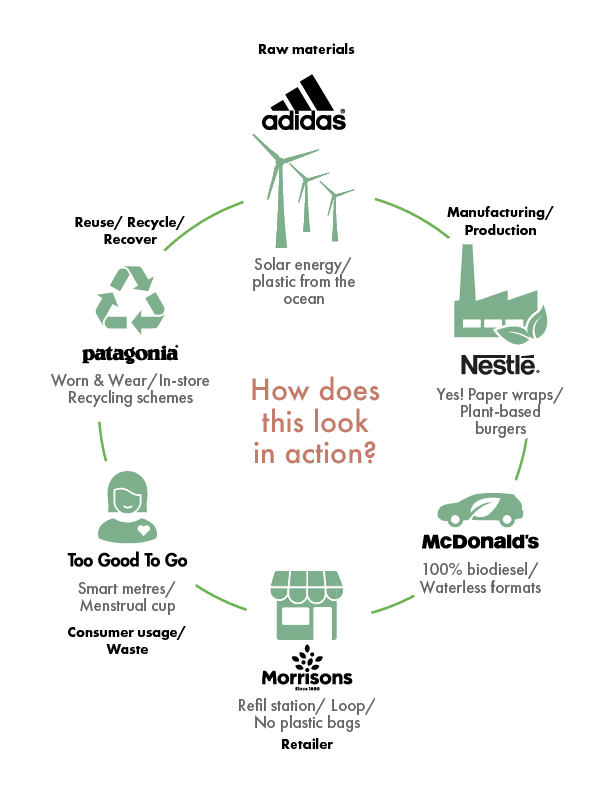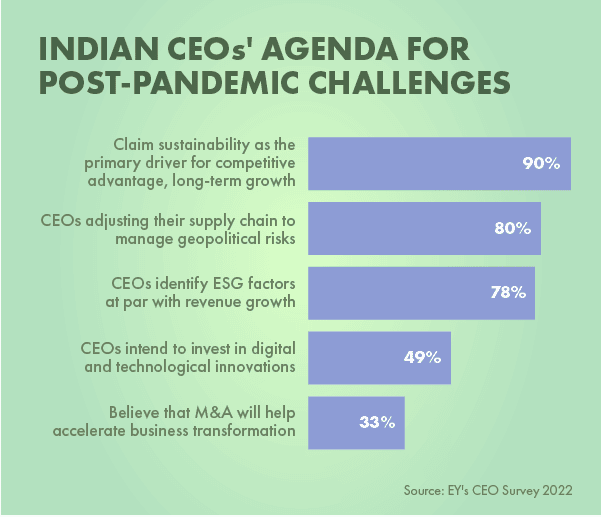How Sustainability Brings Businesses Closer To People and The Planet

Summary: Sustainability has always been confined to environmental goodwill gestures, but studies show that it actually is a major force in driving business resilience, value, and cost reduction.
Today, where uncertainty is a harsh reality across many aspects of commerce and trade, the concept of sustainability shines like a glimmer of hope, but is that all there’s to it? Since the pandemic hit and contemporary standards were imbalanced, people and businesses have grown to value resiliency more and more. Lockdown proved to be a reality check for companies that heavily relied on sourcing resources without caring much about the people and planet; they were the first ones to shut down because of their unsustainability. A lot was learned in the process, and today businesses realize how closely linked sustainability is with their longevity and, therefore, rush to incorporate its dynamics into every course of their actions. But, how can businesses move towards sustainability without going beyond it as a mere concept, to something that’s more aligned with the current scenario?
Business Sustainability: The Biggest Opportunity in Today’s Context?
From a broader perspective, sustainability today means more than just good conscience about environmental issues. In fact, when looked at closely, it is the end goal of any business whose actions and purpose are deeply rooted in financial, environmental, and social facets of execution. Here are a few examples of brands who have adopted sustainability and made it their USP:

Credits: Kantar
In other words, a truly sustainable business model today has all the groundwork for a successful business already done; and as the company grows, the scope of attaining sustainability grows directly in proportion.
Corporate Sustainability & Corporate Social Responsibility: Meaning & Benefits
The sustainability of corporate action is based on the three pillars: Environmental, Social, and Governance (ESG). Corporate Social Responsibility, on the other hand, is a broader term that focuses on what the company has already achieved in its sustainability initiatives. In the current reality, when wars, political monopoly over resources, and social inequality are rampant, corporations and investors often find themselves on the thin ice when it comes to upholding human rights. This has caused businesses of all scales to re-evaluate their human rights policies to explore new opportunities of collaboration, efficiency, and adaptability as the core values to retain their workforce and their license to operate.

Credits: Business Today
Keys To Make Sustainability A Part of Your Business Model
First things first, sustainability is not limited to established businesses. In fact, it’s quite the opposite.
Connect With the Need
What makes a business sustainable is not its adaptability, but its core beliefs; especially when these resonate with the priorities of your internal stakeholders. When all your departments or teams understand how to move towards automation, responsible consumption, cost reduction, etc., they will be empowered to drive sustainability in every aspect of their work. This leads to value creation.
In our case, the idea that led to the creation of Zioks came from a core belief in sustainable collaboration and the need for niche, safe, coworking spaces for the local community of professionals and booming industries. While the ongoing path of our journey to sustainability is paved by our leaders and stakeholders alike, it is a continuing process that keeps on evolving.
Create Value Proposition
Just like how every good technology is wasted unless we figure out the best way to drive value, unless you fix your lens on creating high value and potential for your customers, no amount of expertise can help. This means you have to act fast and adapt, market ideas quickly backed with good research and analysis of their scope, learn from experience, and reinvent your business strategy. And these innovations that arise out of need will lead your business towards more sustainable outcomes.
We were halfway into building our first facility when the pandemic hit, and it was a whole process of stepping out of the comfort zone for us and the rest of the world. We had to think and step in fast, evolving our planning strategies and developing our shared space from the lens of a post-pandemic work-life era — something that’s entirely different to the way it was perceived in a pre-pandemic world.
Focus on Building Community
What most business owners often need to be reminded of is that their business doesn’t need to deliver value to clients on every need, but to be a part of the ecosystem. For businesses to thrive, it takes a conscious effort to seek like-minded businesses and work together in the bigger picture. This means, in some business ecosystems, you may be a significant player, and in others not so much, but the contributions you make not just help you access new resources and markets, but also form communities that believe in the same core principles as you do.
We at Zioks value the power of community and belonging in terms of the growth and longevity of businesses. Therefore our unique workspaces are built to bring ethical professionals — be it corporates or freelancers — to work together, learn from each other, and thrive. We realize that growth requires looking at uncertainty, and rediscovering our capabilities — in constant innovation and going against the grain. Our coworking spaces are designed to accommodate all your disruptive business needs, with our tech-backed amenities, thoughtful facilities, and value subscriptions for businesses of all scales.


